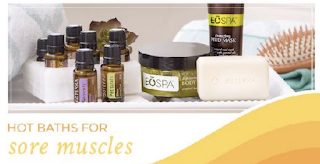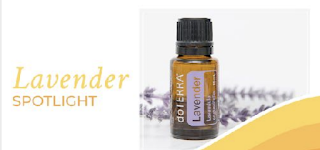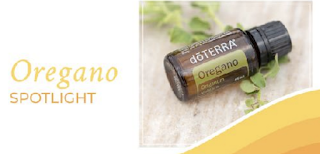What are Essential Oils?
Essential oils are the essence of a plant, a gift from the earth, distilled and prepared for you to bring the power of nature into your home.
Inside many plants—hidden in roots, seeds, flowers, bark—are concentrated, highly potent chemical compounds. These natural compounds are essential oils.
Essential oils give a plant its scent, protect it from hazardous environmental conditions, and even assist it with pollination, among other important functions and benefits.
Historically, essential oils were used as part of cultural practices and traditions.
However, we now have increasing scientific evidence and research showing that essential
oils can be effectively and safely used in a wider range of day-to-day practices and routines for amazing natural health benefits.
Essential oils have been used for over a thousand years. In the past, knowledge of essential oils was solely based
on anecdotal experience. However, scientific research of essential oils has increased exponentially. In the last decade, there have been more studies published about
essential oils than in the last 500 years combined.
Some ways that essential oils may help to soothe everyday aches and discomforts.
If you are pregnant, nursing, or have any existing medical conditions, talk to your doctor before using any essential oils. Also, talk to your doctor about using essential oils
on small children or older adults. I raised all three of my children with essential oils and used them on my parents. Trust your instinct, do your research.
Among single oils, doTERRA currently offers 37 that are safe for internal use. Using the oils for internal purposes means that you go beyond putting them on your skin to
ingest them for their specific benefits to various organs or cells. There are several ways to take oils internally; you can cook with the oils, take them in beverages, or put
them in a veggie capsule to swallow.
Topical application of essential oils is a popular and time-tested model. However, using essential oils on your skin can be a bit more complicated than applying your
regular body lotion. In general, you apply essential oils where you need them for their localized effect.
All doTERRA oils and blends are classified into three categories: Neat, Dilute, or Sensitive. Neat means that no dilution is necessary, Dilute means an oil should always be
diluted for everyone, and Sensitive means it should be diluted for sensitive groups, including young or sensitive skin.
Remember that diluting an oil does not make it less effective.
When in doubt, even the Neat oils can be diluted to your comfort level.
Having a reaction to an oil is rare, but it does happen. You will know if you are having a reaction based on responses in the skin, like irritation or increased tenderness.
When trying a new oil, always perform a patch test by applying one drop of oil (with five to ten drops of carrier oil for hot or sensitive oils) to a patch of skin on your
forearm. Observe that area of skin for one hour for any reaction, though you are most likely to react within 10 minutes.
What is a carrier oil? Carrier oils are vegetable oils with little-to-no scent that are used to dilute essential oils. They are not volatile like essential oils and are shelf-stable.
In carrying essential oils into your skin, carrier oils do dilute the potency of the oil. However, this does not mean that the oil is any less effective. Rather, it means that
essential oils better absorb into your skin because it does not evaporate as quickly. Dilution is also necessary for certain “hot” essential oils, and always a good idea
when using any oils with children or for those with sensitive skin. When in doubt, always dilute.
Here are some of my favorite carrier oils:
- fractionated coconut oil
- sweet almond oil
- jojoba oil
- grapeseed oil
- olive oil
Aromatics can do much more than ease your mind—inhaling or absorbing aromatic plant extracts can help soothe your body!
True aromatherapy is different from smelling a nicely scented candle; it involves using pure extracts from the leaves, stems, and plants of medicinal plants. The chemicals
in the essence of these plants can affect your whole body.
How?
Those chemicals get absorbed through tissues in your nose and lungs, then travel through your limbic system—the network of nerves in your brain that controls your
instincts and emotions—which can alter the perception of pain.
Lavender oil has been used and cherished for centuries for its unmistakable aroma and myriad benefits. In ancient times, the Egyptians and Romans used Lavender for
bathing, relaxation, cooking, and as a perfume. Its calming and relaxing qualities, when taken internally, continue to be Lavender’s most notable attributes. This is my go to essential oil!
Keep a bottle of Lavender oil on hand to soothe occasional skin irritations like bug bites, burns, and other minor irritations. Just make sure to dilute it with a carrier oil!
Lavender can also be taken internally, just dilute one drop in every 4 ounces of liquid.
Yarrow|Pom is an expertly crafted proprietary blend of Yarrow essential oil and cold-pressed Pomegranate seed oil designed to be your go-to for a true inside-out
approach to aging, vitality, and overall wellness.
This active botanical powerhouse can be applied topically to revitalize aging skin and taken internally to support a healthy inflammatory response at the source and
promotes healthy metabolic function. With main chemical components punicic acid (an omega 5), antioxidants, β-caryophyllene, and chamazulene, this vegan-friendly
active botanical duo supports cellular, immune, and nervous system function and rejuvenation when taken internally.
Black Pepper is best known as a common cooking spice that enhances the flavor of foods, but its internal and topical benefits are equally noteworthy.
When applied topically, black pepper essential oil creates a strong warming sensation, which makes for a soothing element to achy muscles.
Just add one or two drops
with a carrier oil and massage areas of tension.
Black pepper can be taken internally to soothe and support the nervous system.
Oregano essential oil has anti-inflammatory compounds that can help reduce swelling and inflammation-related discomfort.
The primary chemical component of Oregano is carvacrol, a phenol that possesses antioxidant properties when ingested. Due to its high phenol content, caution should
be taken when inhaling or diffusing Oregano essential oil; only one to two drops are needed.
Oregano oil is good for massaging into the skin (with a carrier) and can also be taken internally to maintain healthy immune and respiratory function. Be cautious when
applying to skin, as oregano oil may be too strong for those with sensitive skin.

A study published in the Journal of Ethnopharmacology in 2003 found that eucalyptus oil, often utilized in traditional medicine, helps with aches and has anti inflammatory properties.
Research from 2013 found that inhaling eucalyptus essential oil reduced discomfort, and lowered the blood pressure in study participants who had recently undergone
total knee replacement surgeries.
Eucalyptus oil should only be used topically or diffused.
While rosemary might conjure thoughts of roasted chicken, the herb is also one of the most widely-used oils in aromatherapy that’s aimed at reducing aches!
Researchers have found that inhaling the aroma of rosemary can help ease aches, soothe muscles, help with bone health, and may even reduce inflammation.
Peppermint oil contains menthol, a minty-fresh element that has a cooling effect on sore, achy muscles.
For those living with irritable bowel syndrome (IBS), peppermint leaves can provide relief from abdominal agony and bloating. Take a few drops of peppermint orally if
you’re experiencing
digestive issues.
You may also mix peppermint oil with a carrier oil and massage
it into your temples to help relieve any aches in the head.
In the Middle Ages, the Clary Sage plant was frequently used to soothe skin.
Clary Sage is a biennial or perennial herb that grows up to six feet in height. Clary Sage oil is known for its calming properties and benefits to the skin. The main chemical
component of Clary Sage is linalyl acetate, part of the esters group, making it one of the most relaxing, soothing, and balancing essential oils.
Mix a few drops with a carrier oil and massage on sore body parts, or dilute one drop into half a cup of liquid and drink to promote a restful night’s sleep.
Clove has been used for years in dental preparations, candy, and gum for its flavor and ability to cleanse the mouth, yet it provides a myriad of benefits. Its main chemical
component, eugenol, makes it a very stimulating and energizing essential oil that can be used as a warming massage oil. Clove contains powerful antioxidant properties
and supports cardiovascular health when taken internally.
To help soothe a tooth discomfort, mix a drop of clove oil with a carrier oil like coconut and rub it into sore gums.

If you’re not sure which essential oils are best to add to your collection, you can start by trying out doTERRA’s Deep Blue line of products!
doTERRA Deep Blue is perfect for a soothing massage after a long day of work. Wintergreen, Camphor, Peppermint, Ylang Ylang, Helichrysum, Blue Tansy, Blue
Chamomile, and Osmanthus work together to soothe and cool. After long hours on the computer, try rubbing Deep Blue proprietary blend on your fingers, wrists,
shoulders, and neck. A few drops of Deep Blue Soothing Blend diluted in doTERRA Fractionated Coconut Oil can be part of a cooling and comforting massage.
If you’re not keen on mixing oils on your own, doTERRA’s Deep Blue line includes a rub, a roll-on, a pre-mixed Touch roll, and a capsule as well as a pure oil blend.

A great way to ease aches with essential oils is to add your choice of oils to a hot bath. First, add five drops (could be more or less depending on the type of oil you
choose) to an ounce of carrier oil.
If you don’t want oil in your bath (it can get slippery!), add the oil to a cup of milk. The oils will mix with the fats in the milk and disperse through the water accordingly.
As you soak in the bath, the essential oils will enter your body through your skin as well as through the steam you breathe in.
Feeling an achy head coming on?
Mix up the following blend to diffuse, OR add into a carrier oil to rub on your temples:
- 1 drop of lavender
- 1 drop of eucalyptus
- 2 drops of rosemary
or 1 drop Frankincense - 1 drop peppermint - 1 drop lavender
one of my favorites is the Deep Blue Blend
Mix a cup of pure aloe vera gel with five drops of lavender essential oil and keep in the refrigerator. Apply to sunburn for a cooling and soothing effect.
Not only will the aloe vera moisturize your skin to help prevent peeling, but it will work in step with the lavender to begin promoting healthy and revitalized skin. You can
also add a few drops of Peppermint and Frankincense!
Essential oils have a long history of safe and effective use, for everything from personal hygiene and cooking to emotional benefits and health benefits.
However, before you use essential oils, know that not all oils are created equal. Typically, high-quality essential oils go through rounds of rigorous testing to ensure the
product is safe to use. Not all companies use thorough testing methods, and many essential oil distributors will use synthetic fillers that alter the efficacy of the oils.
Only use essential oils that have been carefully produced and thoroughly tested to ensure safety for you and your family. For example, doTERRA essential oils are put
through a meticulous testing process, where they are analyzed for potentially harmful contaminants and other substances that could compromise the safety or quality of
the oil. It’s important to choose high-quality essential oils that have been tested and cleared for safe use
before using them with your family.
Thank you for letting me share with you. Please let me know if you have any questions?
Thank you and enjoy your day
Sourced from doterra.com, Synduit.com
*These statements have not been evaluated by the Food and Drug Administration. This product is not intended to diagnose, treat, cure, or prevent any disease
























No comments:
Post a Comment
Note: Only a member of this blog may post a comment.